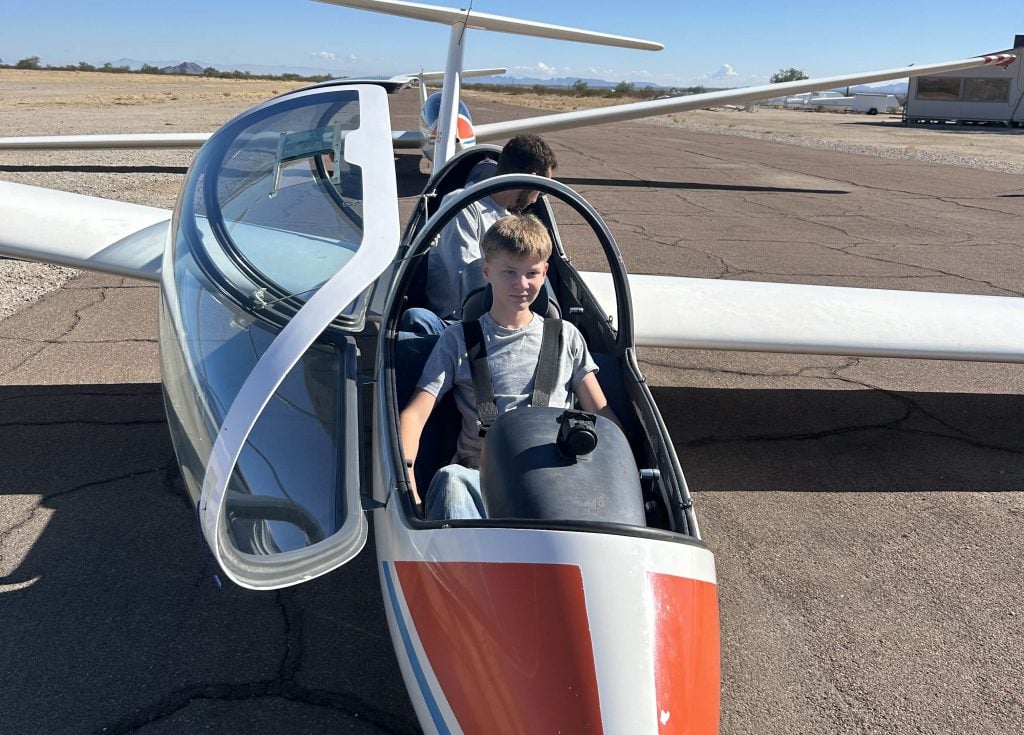
Reading, writing, ‘rithmetic … and the wild blue yonder.
If Dr. Randy Gibb, Grand Canyon University provost, and Paul Lambertson, dean of the university’s College of Engineering and Technology, have anything to do with it, rudders, yaw, ailerons, drones, take-offs and landings would be part of the conversation – and was this fall.
The university partnered with Colorado-based Falcon AeroLab, a nonprofit that connects students with their inner aviator. GCU hosted the STEM and aerospace enrichment program’s first Arizona AirVenture Experience. The hands-on aviation workshops already have embraced K-12 students’ wonder in the wild blue yonder in Colorado, Utah, Idaho and Oregon.
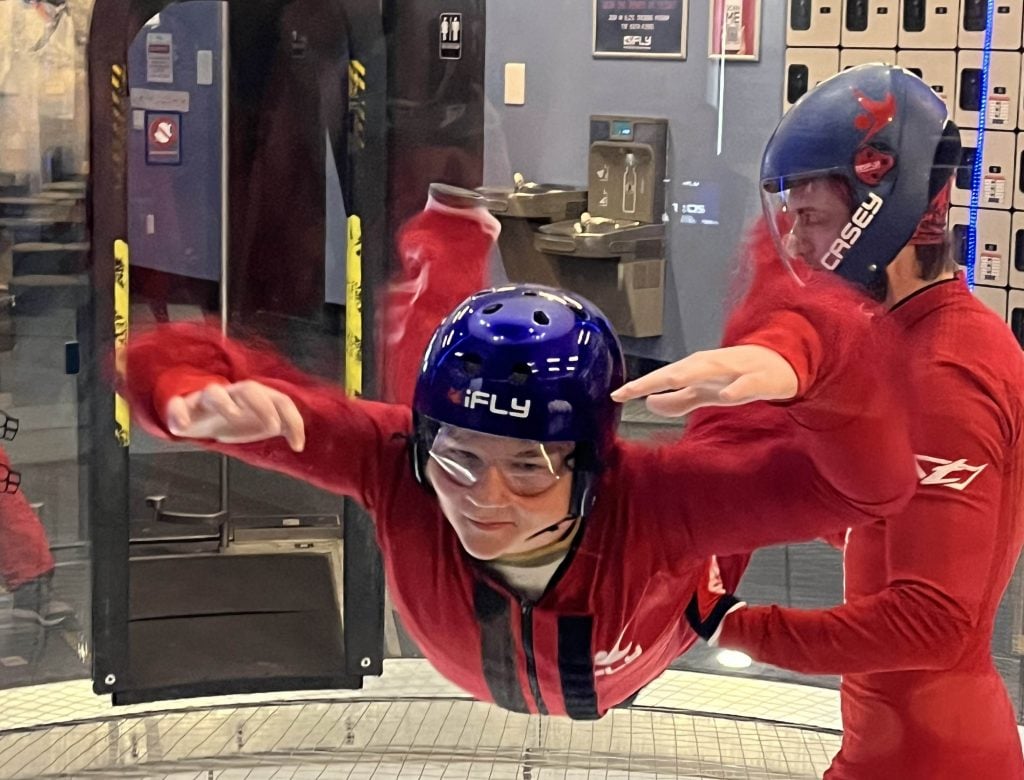
Students ages 9-16 tapped into their interest in flight over a week in Phoenix. They toured Luke Air Force Base, where they had a chance to jump on F-16 flight simulators, look into F-35 fighter aircraft cockpits and visit the control tower. They also learned about glider flight at Estrella Sailport, experienced simulated freefall and learned about aerodynamics at iFLY Scottsdale, chatted it up with aviation professionals, and delved into drone assembly and programming at GCU.
“We need more people in aviation and space operations. Look what’s going on with SpaceX,” said Gibb, a retired Air Force command pilot and colonel who wants GCU to be a go-to academic institution in Arizona for STEM aviation-passionate students.
“If you can get students excited about: How do you fly a drone? How do you fix the drone when it brakes? What are the dynamics of lift and drag? It brings together so many elements, so much curiosity about STEM,” said Gibb, who connected GCU to Falcon AeroLab through its chief executive officer, Mark Hyatt.
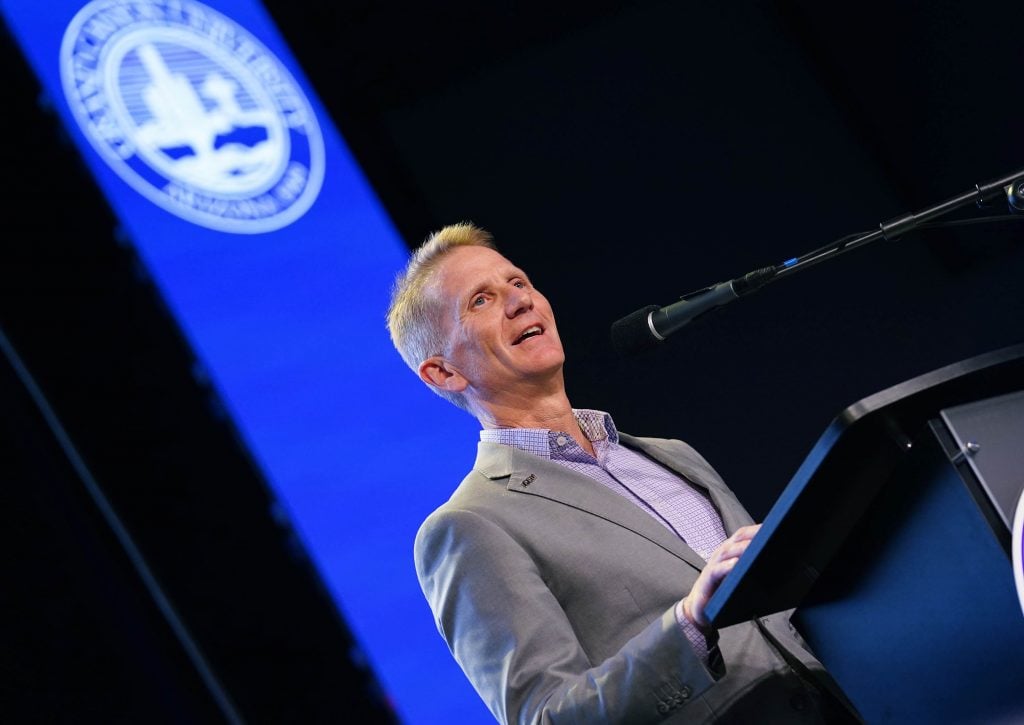
Hyatt, a retired fighter pilot squadron commander in the Air Force, knew Gibb when GCU’s chief academic officer was a 19-year-old fresh out of the Air Force Academy.
Hyatt called to see about expanding Falcon Aerolab’s reach to Arizona.
Gibb and Lambertson, who also served as an Air Force pilot, have set their sights on continuing to grow GCU as a university leader in science, engineering, technology and math. After decades as a leader in producing nurses, educators and theologians, the university opened its College of Science, Engineering and Technology in 2014-15 (it has since split into the College of Engineering and Technology and the College of Natural Sciences).
“They (Gibb and Lambertson) said they’d love to inspire kids in high school (who want to pursue STEM careers) to consider coming here to GCU,” Hyatt said. “Plus, they love planes and aviation and all that. That’s why they invited me to bring my team down here and do our first (Arizona) event.”
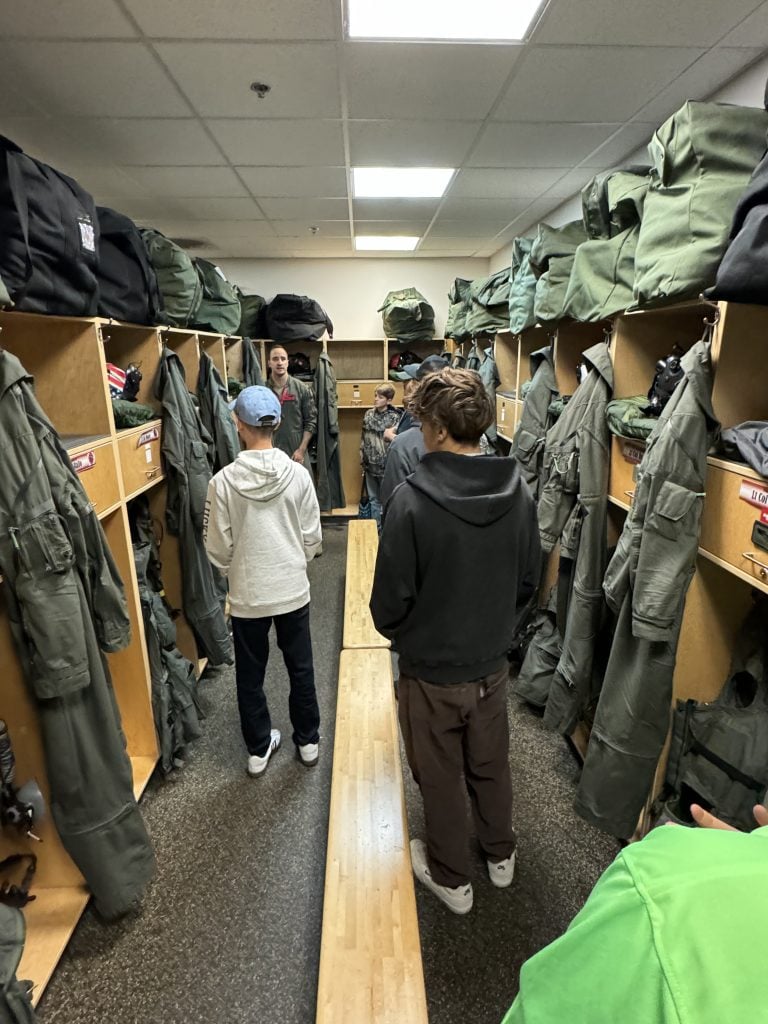
Hyatt was in the military for 29 years after graduating from the Air Force Academy.
“I just loved that,” he said. “But when I retired, I knew I had to have a noble mission; I can’t just go make money.”
For Hyatt, the next noble mission following his military career was education.
He became a school superintendent at The Classical Academy, the largest charter school in Colorado, and he also was the executive director of the Colorado Charter School Institute in Denver.
After retiring for a second time, “I got bored after about six months. I looked in the Bible on the chapter for retirement and I couldn’t find it,” Hyatt said. “ … So I asked God, ‘What am I supposed to do?’”
His mission became to inspire students to not only fly but go into careers, such as engineering, that support the aerospace and aviation industry.
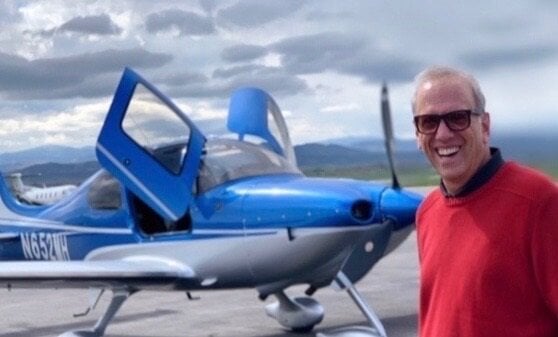
Hyatt said Falcon AeroLab, founded in 2017, serves half a dozen school districts in Colorado and points to mom Sara Hurley, now the supplemental education program’s chief operating officer. She would drive her daughters 2 ½ hours to Colorado Springs from her town near the Oklahoma border to be a part of the program.
Her oldest daughter, Ella, soloed in gliders when she was just 14 years old and airplanes at 16, earned her pilot’s license at 17 and then her commercial, instrument and instructor ratings at 18.
Now 20, she's a seasoned instructor pilot.
“We have dozens of students preparing to fly for our military and as commercial pilots. Others are on their way to becoming aircraft mechanics,” said Hyatt of the program, which in 2023 saw 25 of its students earn their drone licenses, 12 complete their glider solos, 119 introductory flight training-powered (IFT) students complete almost 1,227 flights, and six IFT students receive their private pilot license.
According to the Institute for Defense and Government Advancement, 5,400 more pilots will be needed in the U.S. alone by 2032, and in 2023, the Air Force produced about 1,350 pilots, short of its goal of 1,470.
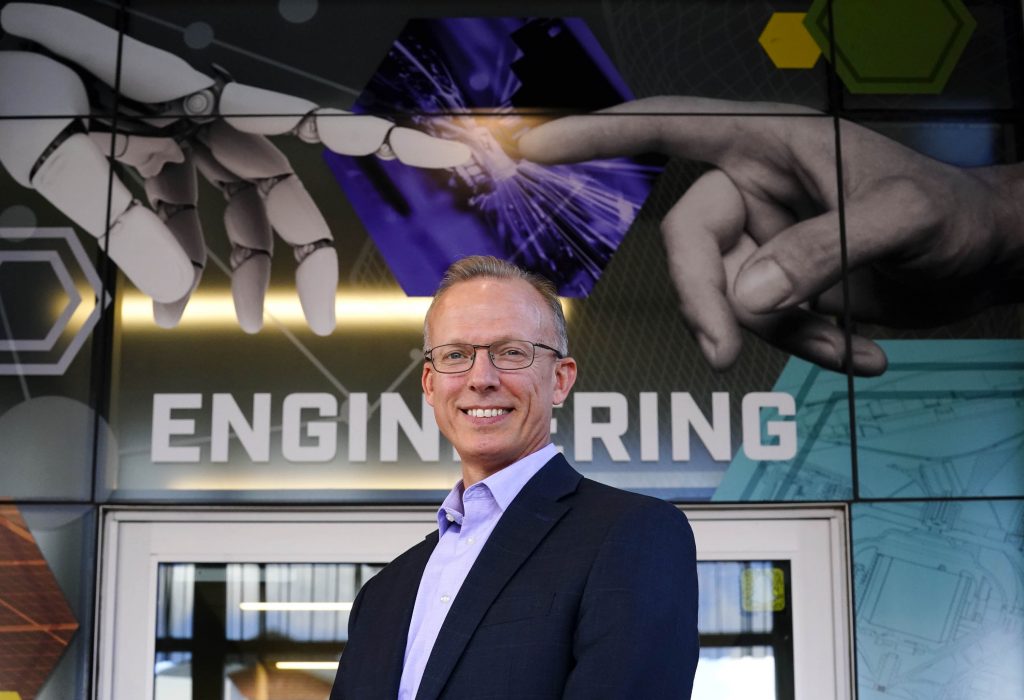
Lambertson said GCU is dedicated to contributing to the STEM workforce, and that includes aviation.
“STEM requires an earlier inspiration,” and that for women, “you really have to get STEM in at the middle school level,” he said.
With Falcon Aerolab’s AirVenture Experience and his college’s popular cybersecurity camps for K-12 students, “What we’re really trying to do is inspire middle schools to do great things in STEM, like flying and cyber,” Lambertson said. … “We’re really investing early to kind of get those kids who wouldn’t have ever known how cool a drone is or wouldn’t have ever known, ‘Hey, this freefall thing is really cool.'
“You’re not just inspiring STEM, you’re inspiring even military service.”
Plans are for Falcon Aerolab and GCU to partner for a mini aviation camp in January, with glider, airplane, helicopter and vertical wind tunnel flights, followed by full-week camps in May.
Added Gibb, “They (Falcon Aerolab) really want to motivate young men and women into aviation careers and get them excited about engineering, science, physics, math and technology.”
Hyatt said Arizona is a perfect place for a STEM career because it “has a very robust industry for aerospace and aviation" and is home to Boeing, Honeywell and Luke Air Force Base, among other aviation-forward companies.
GCU aims to set students up for those types of careers, offering a Bachelor of Science in Mechanical Engineering with an Aerospace Emphasis and is in the process of building a stand-alone aerospace engineering bachelor’s program.
All of it, a noble mission.
GCU Manager of Internal Communications Lana Sweeten-Shults can be reached at [email protected] or at (602) 639-7901.
**
Related content:
GCU News: Hawaiian Air internship took wing for grad
GCU News: Honeywell Day builds on student interest









































































